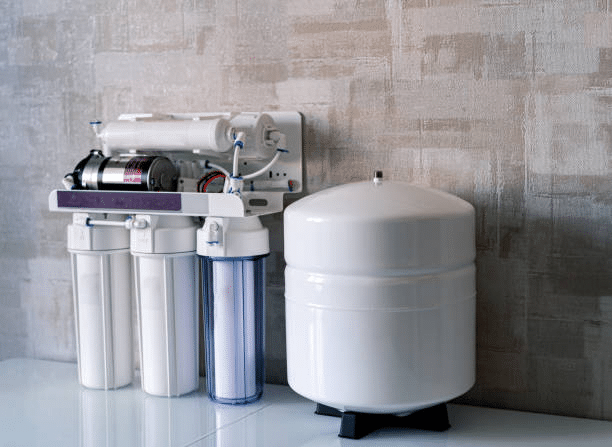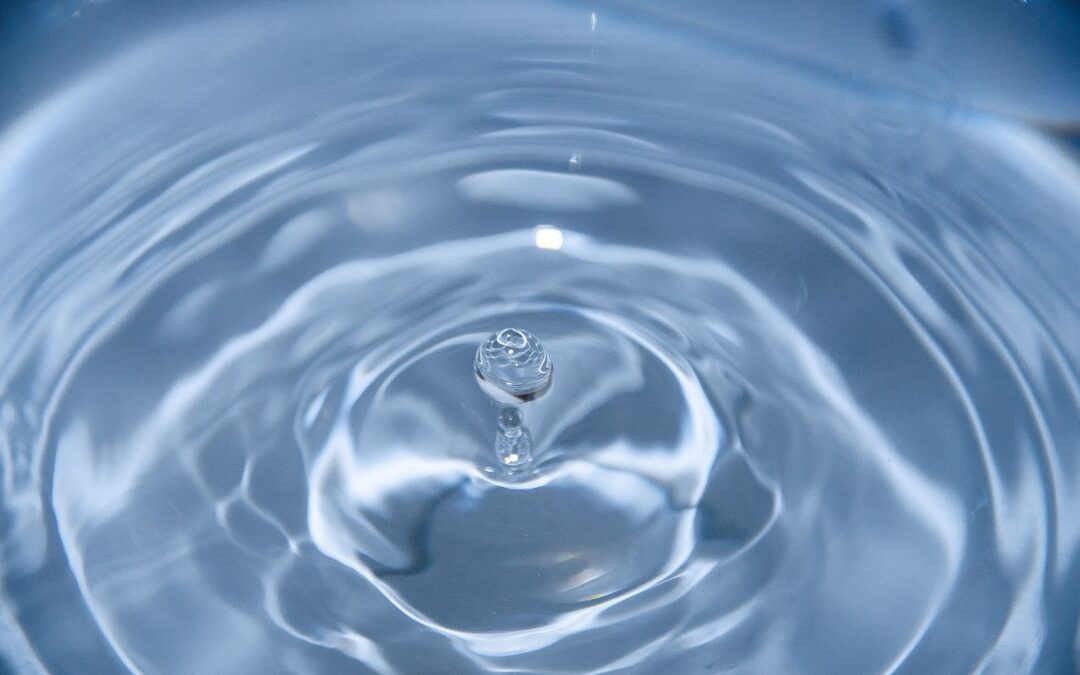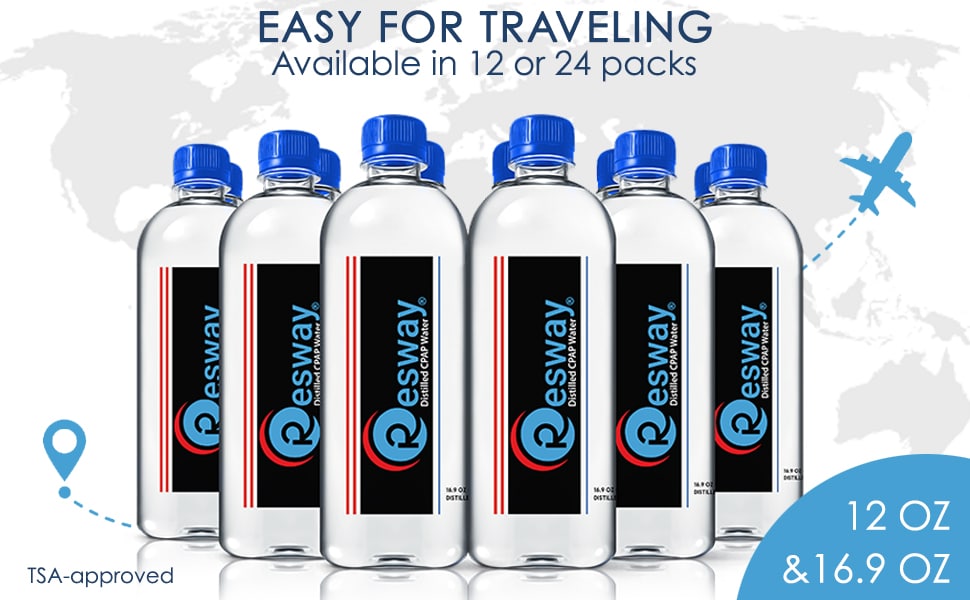Water filtration removes impurities and contaminants from water to make it safe for consumption. Understanding water filtration is crucial to ensure access to clean, safe drinking water. With increasing pollution and the degradation of water sources, it has become essential to have efficient water filtration systems to maintain drinking water quality.
Clean water is essential for human health and well-being. Access to safe drinking water is a fundamental human right, but unfortunately, only some have access. Unsafe water can spread waterborne diseases and illnesses, which can be fatal, especially for vulnerable populations such as children, pregnant women, and the elderly.
Therefore, it is crucial to have clean and safe drinking water to maintain good health and prevent diseases. Water filtration systems play a vital role in ensuring access to clean water.
Types Of Water Filtration Systems
When it comes to drinking water, having a clean and safe water supply is essential. Various types of water filtration systems are available to remove harmful contaminants from your water supply.
Here’s an overview of the different kinds of water filtration systems:
Carbon Filters
These water filters use activated carbon to remove contaminants such as sediment, volatile organic compounds (VOCs), and organic compounds from tap water.
Reverse Osmosis
These water treatment systems use a semipermeable membrane to remove ions, molecules, and larger particles from drinking water. Reverse osmosis systems effectively remove many contaminants, including harmful minerals, bacteria, and viruses.
Sediment And Carbon Filters
This combines two filters to remove sediment and contaminants from tap water. The sediment filter removes larger particles, such as sand, dirt, and rust, while the activated carbon filter removes smaller particles, such as VOCs and organic compounds.
Ion Exchange
This process removes minerals such as calcium and magnesium from the water by exchanging them with sodium ions. Ion exchange is often used in water softeners to remove hard water minerals.
Each type of filtration system works differently; some are more effective than others at removing specific contaminants. Here are some examples of each type of filtration system:
- Carbon Filter: Brita Pitcher, Aquasana Under Sink Water Filter
- Reverse Osmosis: APEC Water Systems ROES-50, iSpring RCC7AK
- Sediment and Carbon Filter: Culligan FM-25, PUR PFM400H
- Ion Exchange: Fleck 5600SXT Water Softener, NuvoH2O DPHB Water Softener
It’s important to note that not all filters are created equal. Some filters may only be effective at removing specific contaminants, so choosing the right filtration system for your water supply is essential.
Here’s a comparison of the effectiveness of each system:
- Carbon Filters: Effective at removing sediment, VOCs, and organic compounds, but may not remove all harmful contaminants.
- Reverse Osmosis: Highly effective at removing various contaminants, including minerals, bacteria, and viruses.
- Sediment and Carbon Filters: Effective at removing larger particles and some smaller contaminants, but may not remove all harmful contaminants.
- Ion Exchange: Effective at removing hard water minerals but may not remove other harmful contaminants.
It’s essential to consider the pros and cons of each type of filtration system when choosing a water filtration system for your home. For example, reverse osmosis systems are highly effective but may be more expensive to install and maintain. Sediment and carbon filters are more affordable but may require more frequent filter replacements.
What Water Filtration Removes

Water filtration systems play a crucial role in ensuring that our drinking water is safe and understanding water filtration is key to appreciating their importance. These systems are designed to remove contaminants that can harm our health, such as harmful chemicals, bacteria, and viruses. In this section, we will explore some common contaminants that can be removed by water filtration and how different types of filtration systems work to remove them.
Common Contaminants Removed by Water Filtration
1. Chlorine
Chlorine is commonly used to disinfect water in water treatment plants. While it effectively kills bacteria and viruses, it can also cause health problems, especially when consumed in high amounts. Carbon filters and reverse osmosis systems are effective in removing chlorine from water.
2. Volatile Organic Compounds (VOCs)
VOCs are chemicals found in pesticides, herbicides, and other chemicals used in agriculture and industry. Exposure to high levels of VOCs can cause various health problems, including headaches, nausea, and damage to the liver and kidneys. Activated carbon filters and granular activated carbon filters are effective in removing VOCs from water.
3. Sediments
Sediments, such as sand, dirt, and rust, can make water appear cloudy and unappealing. While they are not harmful to our health, they can affect the taste and smell of water. Sediment filters are designed to remove these particles from water.
4. Biological Contaminant
Bacteria, viruses, and parasites can be present in untreated water sources. These contaminants can cause various illnesses, including diarrhea, vomiting, and stomach cramps. Filtration systems that use reverse osmosis, ultraviolet light, and ceramic filters effectively remove these biological contaminants from water.
5. Heavy Metals
Heavy metals such as lead, mercury, and arsenic can be present in water sources, especially in areas with old pipes or industrial activities. Exposure to high levels of these metals can cause various health problems, including developmental delays and neurological issues. Filtration systems that use activated carbon filters, reverse osmosis, and ion exchange effectively remove heavy metals from water.
It is important to note that not all water filtration systems are created equal, and some methods may not be effective in removing specific contaminants. For example, some systems may not remove fluoride, added to water in some areas to prevent tooth decay. Additionally, some filtration methods may not be effective in removing pesticides or other chemicals that can be present in water sources.
Factors Affecting Water Filtration Effectiveness
Water filtration systems are designed to remove various contaminants from water, but the effectiveness of these systems can be influenced by several factors. Here are some of the critical factors that affect water filtration effectiveness:
Water Source And Quality
The source of your water can significantly impact the effectiveness of your filtration system. Groundwater sources may contain high levels of minerals, such as iron or manganese, which can clog filters and reduce their effectiveness. Surface water sources may be contaminated with bacteria, viruses, and other pathogens that require more advanced filtration methods, such as reverse osmosis.
The quality of your water can also impact filtration effectiveness. High sediment, turbidity, or organic matter levels can reduce filters’ lifespan and require more frequent replacement. Specific contaminants, such as volatile organic compounds, may also need specialized filtration methods to effectively remove them.
System Maintenance
The effectiveness of a filtration system can also be impacted by proper maintenance. Refrain from replacing filters regularly to reduce their effectiveness and even lead to bacterial growth within the system. Similarly, failing to properly maintain the system’s membranes, such as those used in reverse osmosis systems, can lead to fouling and reduced performance.
System Design And Installation
The effectiveness of water filtration systems is greatly influenced by their design and installation, vital components in understanding water filtration. Factors such as filter size and type, water flow rate, and the system’s placement can significantly affect their performance. A poorly designed or installed system may not remove contaminants efficiently and could become prone to clogging or damage over time.
Therefore, it is essential to consider the source and quality of the water, maintenance practices, and the specifics of system design and installation when selecting and upkeeping a water filtration system, ensuring it performs optimally for the cleanest water output.
Maintenance Of Water Filtration Systems

Water filtration systems require regular maintenance to ensure their optimal performance. Neglecting maintenance tasks can impact filtration effectiveness and ultimately lead to contaminated water.
How to Maintain Different Types of Filtration Systems
Sediment Filter Maintenance
Sediment filters are the first line of defense in water filtration systems. They remove large particles such as sand, dirt, and rust. These filters must be changed every three to six months, depending on the sediment level in the water. Neglecting to change these filters can cause them to clog and reduce water flow.
Carbon Filter Maintenance
Carbon filters effectively remove chlorine, volatile organic compounds (VOCs), and other chemicals. These filters must be changed every six to twelve months, depending on water usage and the level of contaminants. Neglecting to change these filters can cause them to lose effectiveness and allow harmful pollutants to pass through.
Reverse Osmosis System Maintenance
Reverse osmosis (RO) systems effectively remove lead, arsenic, and fluoride contaminants. These systems require periodic replacement of the sediment and carbon filters and the RO membrane. Refrain from changing these components to prevent the system from losing effectiveness and resulting in contaminated water.
Water Softener Maintenance
Water softeners remove hard minerals such as calcium and magnesium from water. These systems require regular salt replenishment to maintain their effectiveness. Refrain from replenishing the salt to prevent the system from losing effectiveness, resulting in hard water.
Other Maintenance Tasks
Other maintenance tasks that should be performed include regular cleaning of the system components, checking for leaks, and ensuring that the system is operating within its recommended parameters.
Neglecting maintenance tasks can significantly impact the effectiveness of water filtration systems. Over time, the filters can become clogged with contaminants, reducing their ability to remove impurities from the water. Additionally, the buildup of minerals or other deposits can cause damage to the system and reduce its lifespan.
To ensure optimal performance, regular maintenance is crucial. Some everyday maintenance tasks include replacing filters as the manufacturer recommends, cleaning and sanitizing the system, and checking for leaks or other issues. Other duties may also be necessary depending on the filtration system type.
Tips for Maintaining Water Filtration Systems
Understanding water filtration is crucial for maintaining a system’s effectiveness. Here are some concise tips:
- Follow the manufacturer’s recommended maintenance schedule: This will ensure the system is properly maintained and any issues are addressed before they become more serious.
- Replace filters as recommended: Filters can become clogged with contaminants over time, reducing their effectiveness. Replace them as recommended to ensure the system removes impurities from the water.
- Clean and sanitize the system: Regular cleaning and sanitizing can help remove any buildup of contaminants or minerals, helping to extend the system’s life.
- Check for leaks: Leaks can cause damage to the system and reduce its effectiveness. Regularly checking for leaks and promptly addressing any issues can help prevent more severe problems.
By following these tips and performing regular maintenance, you can help ensure that your water filtration system operates at peak performance and provides clean, safe drinking water.
Clean Water Access With Filtration Systems

Access to clean water is essential for maintaining good health. While municipal water treatment facilities do an excellent job of removing most contaminants, harmful contaminants can remain in tap water. Installing a water filtration system is an effective way to ensure access to clean, safe drinking water.
Different types of water filtration systems are available, each with advantages and disadvantages, and choosing the proper method for your needs is essential. It’s also important to perform regular maintenance on your water filtration system to ensure its optimal performance.
By doing so, you can be sure that your water filtration system is removing harmful
contaminants and providing clean, safe drinking water. So, take action today and install a water filtration system to ensure access to clean, safe drinking water for you and your family.
Let us know your main takeaways from this article!




